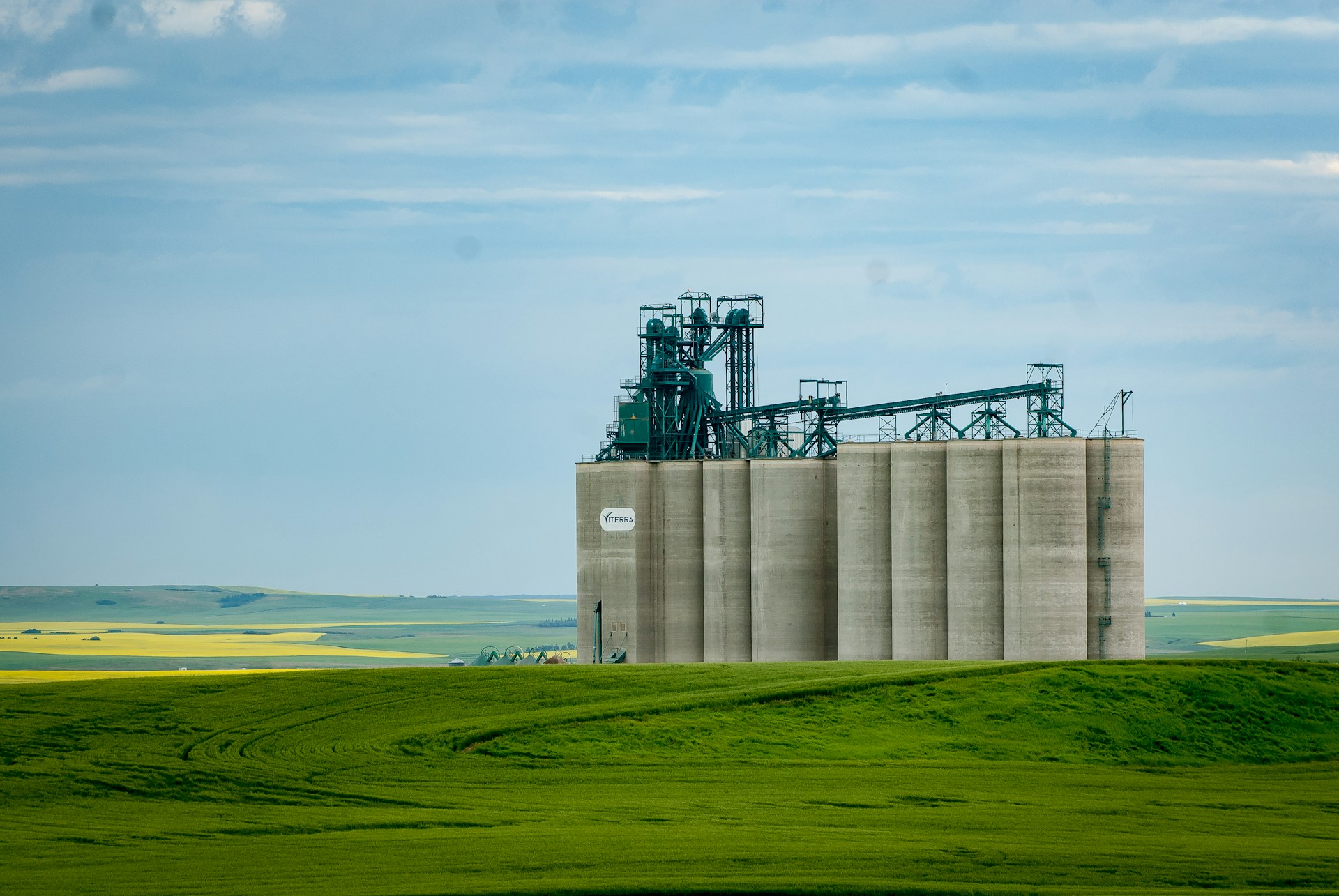Maximize Efficiency with Sustainable Food Production
 In today’s rapidly evolving food industry, sustainable food production has become more than just a buzzword, it’s a necessity.
In today’s rapidly evolving food industry, sustainable food production has become more than just a buzzword, it’s a necessity.
As consumers grow increasingly conscious of their environmental impact, food manufacturers are recognizing the importance of adopting eco-friendly practices.
This blog post explores the numerous benefits of sustainable food manufacturing, from reducing waste and energy consumption to improving brand reputation and consumer loyalty.
Whether you’re a small-scale producer or a large corporation, understanding and implementing sustainable practices can revolutionize your operations and set you apart in a competitive market.
Discover how embracing sustainability can maximize efficiency, reduce costs, and position your business for long-term success in the green food industry.
The Growing Importance of Sustainability in Food Manufacturing
Consumer-Driven Change
The green food industry is experiencing a significant shift as sustainability becomes a paramount concern for consumers. As awareness grows about the environmental impact of food choices, manufacturers are compelled to adapt their practices to meet these evolving demands. This consumer-driven change is reshaping the landscape of food production, with sustainability at its core.
Environmental and Economic Benefits
Embracing sustainability in food manufacturing offers dual advantages:
• Environmental Impact: Sustainable practices significantly reduce the industry’s carbon footprint, addressing critical issues like climate change and resource depletion.
• Economic Viability: Companies adopting green initiatives often see improved efficiency and cost savings in the long term.
Regulatory Compliance and Future-Proofing
As governments worldwide implement stricter environmental regulations, food manufacturers must stay ahead of the curve. Those who proactively embrace sustainable practices in the green food industry are better positioned to:
- Comply with current and future regulations
- Avoid potential penalties
- Maintain a positive brand reputation
By prioritizing sustainability, food manufacturers not only meet consumer expectations but also contribute to a more resilient and sustainable global food system.
Reducing Waste and Maximizing Resource Efficiency
Sustainable food production is revolutionizing the industry by implementing eco-friendly practices that significantly reduce waste and optimize resource efficiency. This approach offers numerous benefits:
Resource Optimization
Sustainable manufacturing techniques focus on minimizing resource consumption, leading to substantial cost savings. For instance:
- Water recycling systems drastically cut water usage
- Energy-efficient equipment lowers electricity costs
- Streamlined processes reduce raw material waste
Upcycling Innovations
A key aspect of sustainable food production is finding innovative uses for byproducts:
- Spent grains from beer production become nutritious flour
- Fruit peels transform into natural food colorings
- Coffee grounds serve as organic fertilizers
By adopting these eco-friendly practices, food manufacturers not only reduce their environmental impact but also create additional revenue streams, demonstrating that sustainability and profitability can go hand in hand.
Enhancing Energy Efficiency and Reducing Carbon Footprint
The food manufacturing sector is at the forefront of sustainable practices, with energy efficiency emerging as a key driver in reducing carbon footprints.
Sustainable manufacturing in the green food industry involves implementing innovative strategies to minimize environmental impact while maximizing operational efficiency. Here’s how food manufacturers are leading the charge:
Energy-Efficient Equipment and Technologies
- Investment in state-of-the-art machinery reduces energy consumption
- Smart energy management systems optimize resource utilization
- Automated controls adjust lighting and temperature based on occupancy
Renewable Energy Integration
- Solar panels and wind turbines provide clean, sustainable power
- Long-term cost savings offset initial investment
- Significant reduction in greenhouse gas emissions
By adopting these practices, food manufacturers not only contribute to a greener future but also benefit from reduced operational costs and enhanced brand reputation in the competitive green food industry.
Improving Product Quality and Safety
Sustainable manufacturing in the food industry isn’t just about environmental stewardship, it’s a powerful driver of product quality and safety.
By embracing eco-friendly practices, manufacturers are revolutionizing the way we produce, package, and consume food:
- Clean Label Products: Sustainable practices often prioritize high-quality, natural ingredients, aligning with consumer demand for healthier options.
- Enhanced Traceability: Implementing farm-to-fork tracking systems ensures transparency and swift responses to potential safety issues.
- Optimized Freshness: Streamlined, sustainable supply chains result in fresher products with extended shelf lives, reducing waste and improving quality.
By integrating sustainability into their core operations, food manufacturers are not only meeting eco-conscious consumer expectations but also setting new standards for product excellence and safety.
Building Brand Reputation and Consumer Loyalty
In today’s competitive market, companies are increasingly recognizing the importance of eco-friendly practices in building a strong brand reputation.
Sustainable manufacturing not only benefits the environment but also attracts environmentally conscious consumers, fostering brand loyalty and long-term success. Here’s how sustainable food production can enhance a company’s image:
• Transparency: Sustainable manufacturers often provide detailed information about their sourcing and production methods, building consumer trust.
• Quality Assurance: Eco-friendly practices often result in higher-quality products, further enhancing brand reputation.
• Consumer Education: By sharing information about sustainable manufacturing, companies educate consumers about environmental issues, positioning themselves as industry leaders.
• Brand Differentiation: In a crowded market, sustainable practices can set a brand apart from competitors.
By consistently delivering high-quality, sustainably produced products, manufacturers can cultivate a loyal customer base that values eco-friendly practices.
This loyalty translates into repeat business, positive word-of-mouth marketing, and ultimately, a stronger market position.
Achieving Compliance and Future-Proofing Your Business
Adopting sustainable manufacturing practices is no longer just an option for food producers, it’s a necessity for long-term success.
As environmental regulations tighten, companies in the green food industry must proactively implement eco-friendly practices to stay compliant and avoid costly penalties. By embracing sustainable manufacturing techniques, businesses can:
• Ensure Regulatory Compliance: Stay ahead of evolving environmental standards
• Enhance Resource Efficiency: Reduce reliance on non-renewable resources
• Boost Innovation: Discover new technologies that provide a competitive edge
These strategies not only future-proof operations against resource scarcity and price volatility but also foster a culture of continuous improvement.
As the food industry navigates the challenges of climate change, sustainable manufacturing practices offer a path to resilience, adaptability, and long-term success in the green food industry.
Embracing a Sustainable Future in Food Manufacturing
The benefits of sustainable food manufacturing are clear and far-reaching. From reducing waste and energy consumption to improving product quality and building brand reputation, eco-friendly practices offer a pathway to long-term success.
As consumers become increasingly aware of the environmental impact of their food choices, manufacturers who embrace sustainability will be well-positioned to meet this growing demand.
Transitioning to sustainable food production may seem daunting, but it’s a journey worth undertaking.
Start by assessing your current practices and identifying areas for improvement. Consider partnering with sustainability experts to learn more about best practices and innovative solutions.
By embracing sustainable production, you’re not only contributing to a healthier planet but also setting your business up for success in an increasingly eco-conscious market.
Take the first step towards a sustainable future today, and reap the benefits of being a leader in the green food industry.





